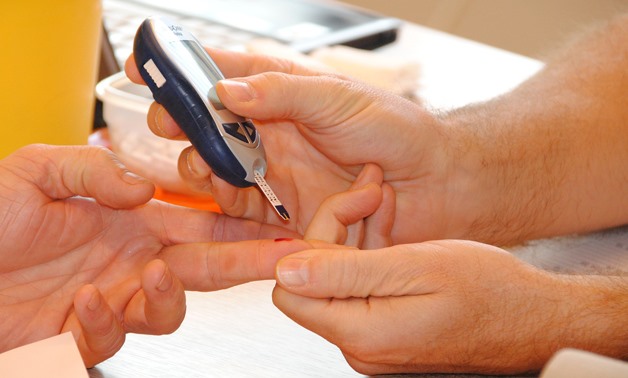
Sugar blood test quicktest - cc via Pixabay
CAIRO - 22 May 2018: Fasting during Ramadan can lead to serious health complications for people suffering from diabetes, thus most of diabetes patients are advised not to fast. The main issues that diabetes patients could face are associated with the long periods of fasting that can extend from 12 to 16 hours daily depending on where you are, and the sudden inflow of sugars and food upon breaking the fast which can severely affect the insulin levels and lead to serious health complications. People who have kidney issues or poor heart health coupled with diabetes should not be fasting at all.
Here are some tips for diabetes patients who decide to fast:
Speak to your doctor first
If you are diagnosed with diabetes and you decide to fast Ramadan, speak to your doctor to ensure that you are taking care of your health. If your doctor approves your decision to fast, make sure you understand your doctor's directions on health risks before, during and after the fast and always keep your doctor informed of any food and exercise decision you make.
Then try fasting for a couple of days
Following your doctor's approval of fasting, try to fast for a couple of days first as a trial period. Measure your glucose levels three times a day (before starting, during the fast and after breaking the fast) and record how you feel. Communicate with your doctor to understand whether your body is reacting normally or not.
If your records are approved normal by your doctor, continue fasting while following these tips:
- Do not miss Sohour; it is the best meal during Ramadan. Do not skip this meal for any reason. Sohour ensures that your glucose levels do not drop or rise dramatically during the day. Drink a lot of water during Sohour and eat starchy foods that release carbs only like oatmeal, whole grain breads, starchy vegetables, legumes and pulse.
- At Iftar, avoid sugar in desserts and fried food that can affect your glucose levels. Following the same Sohour routine, concentrate on low starchy food and proteins. Also, drink a lot of water throughout the night.
- Closely monitor your glucose level by testing it at least twice every day. Make sure that you immediately check your sugar levels if your feel sick or tired.
- Immediately break your fast if you feel disoriented or faint; also if your glucose levels are too high or too low end the fast and do not risk your health.
- Always carry a glucose packet or a small candy with you.
Comments
Leave a Comment